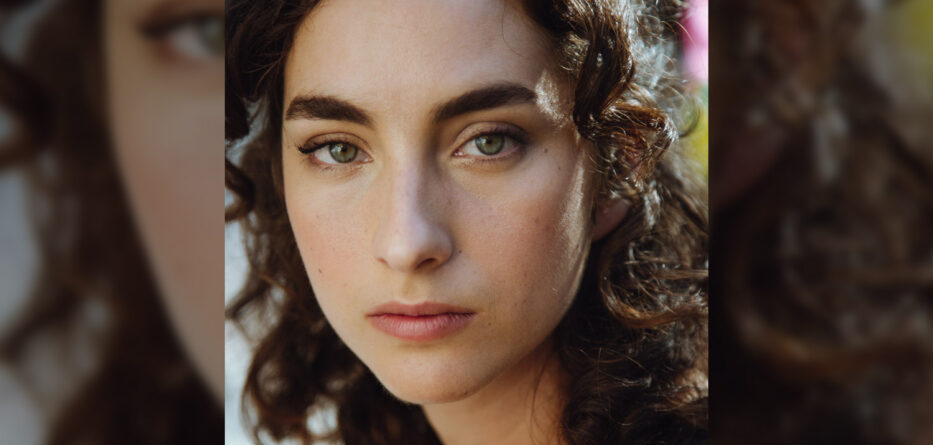Arturo Hilario
El Observador
A new religious horror film is headed to theaters this week, and it is a refreshing twist on a classic, while still channeling the themes of the original.
The First Omen, which is in theaters Friday April 5, brings new questions and depth to the world of the original 1976 horror icon The Omen, and answers some questions that had been asked since the film premiered 48 years ago.
In the original film, the focus is on Damien Thorn, a child who brings mayhem and evil wherever he goes. It turns out he is the antichrist and the son of the actual devil. In The First Omen, audiences will find out where he came from and why it all happened.
The First Omen stars Nell Tiger Free (Servant), Tawfeek Barhom (Mary Magdalene), Sonia Braga (Kiss of the Spider Woman), Ralph Ineson (The Northman), Bill Nighy (Living) and María Caballero (The Girl in the Mirror, The Longest Night).
Director Arkasha Stevenson makes her directorial debut with this film and challenges audiences with horrors both supernatural and based in reality. Touching on themes of sexual assault, abuse and political unrest, the film weaves the supernatural horror into a gothic setting of 1970s Rome in a seamless method.
Recently we had the opportunity to speak to one of the lead actresses, María Caballero, a Spanish actress who plays Luz, a novitiate (religious member in training) and roommate of the lead character of Margaret, who is played by Nell Tiger Free.
Margaret’s childhood is a mysterious haze, but she grew up in the Catholic church’s foster system, and is eventually sent to Rome to finish out her training before becoming a nun alongside Luz.
Strange visions, warnings from a conspiratorial father and ramping friction with her own sisters in the church lead Margaret to suspect there is something wicked happening right under the cross she is devoted to.
In the following, Caballero answers what her experience was on the production, how it allows for conversations of real life evil among the supernatural, and why working with a largely female cast and veteran actors allowed for an incredible experience for her.
To start off, I wanted to know about your character of Luz and her motivations, what did you want to bring out of the character from the script to your portrayal and have the audience know about her?
Well, first of all, she’s a novitiate. She’s going to take the veil, which is what novitiates do to become a nun. She’s a bold, passionate girl that found in religion her home, her purpose. Her purpose is to accomplish something bigger than her. So, she’s trying to protect the church and make it bigger and make it better. I would say from myself, I wanted to bring the braveness that she needs to have in order to pursue her objective, because I feel like she’s a very brave character, and she’s going for it.
I think artistically, there’s a dark, beautiful aura in this movie that is really interesting to experience.
-María Caballero
The film is about supernatural horror, but it also has layers of real-life horror with themes of abuse, assault, loss of faith, and betrayal from systems that are meant to protect you or side with you. Why do you think these themes fit in a horror film and can still be relevant to real-world experience?
Well, I think the supernatural gives you the space, the blank space to speak about bigger things and ask questions, ethical questions that maybe are better explained or better explored in a background such as this.
That’s why also the Catholic Church is used so many times. It’s been used so many within the horror genre, I feel, because it gives you space to talk about it in a more free way, I would say. Also, yes, we have a lot of themes going on in this movie, some of them are really hard and really complex. But I feel the studios and our Phantom Four producers and Arkasha have all been really bold to lead the movie, to let the movie be what it is and not cut any of that, any of those scenes or any of those things.
Because at the end of the day, fiction has that power. We need to talk about these things. We need to have these conversations.
The experience of the lead character, Margaret, is seen from her female perspective and the horror she endures are also seen through that female lens. What was it like working with a largely female cast and director in showing those viewpoints?
It was amazing. It was really respectful. We were all really connected within us. We had great relationships. We still do. We knew that we were doing something really sacred, and we knew we had to take care of ourselves while we were doing it. I feel like we explored all these themes, but from a really safe way. And I’m really glad that we all got to do it safely.
This is Arkasha Stevenson’s directorial debut. How was the experience of being under her guidance and the overall experience of working with her?
It was really interesting for me because the movie was so big and the crew and cast are at the top of their game, right? And then in this big production, all these cameras, all these people. And then you have this young woman who is on the floor with a little screen and is like coming to me and whispering in my ear. And then we are creating this magic between us in these scenes, and it was really interesting because the project was so big.
And then, Arkasha and I were working together as if we were building a puzzle, a little one. And so it felt really good. It felt like if we were building our intimate scene and giving it… for example, we would do the scene and then she’d say, “now let’s do our version.” And then I would improvise, or I would try seeing new things out. And I think that adds magic to the movie and to the character of Luz, that without Arkasha, it would have never had happened.
She’s amazing. She has this sensitivity to her, and she’s bold. She sticks to her vision. At the same time, you can propose her things and stuff, but she will fight for the thing she thinks is right.
The original The Omen is released in the ’70s, making this prequel a period piece because it takes place a few years before then. So how was that experience of being in Rome and recreating that time period?
Oh, it was amazing. In Italy I was going to churches on my free time. I was going to the Vatican, to see some masses there. I was reading the Bible at the same time. Then I’d be watching documentaries on the ’70s. So it felt like we all were stepping into a world that was very chaotical. Anything could happen. And the mysticism that’s raised in this movie within the Catholic Church, it was really interesting for me to be part of that and to understand how people who believe can arrive to those places.
In general, what was your favorite aspect of working on The First Omen overall?
Well, it’s [based on] a movie I love, The Omen, and it has this actor, Gregory Peck, which is one of my favorites that I’ve seen as a child. And then for sure, the cast that I’m acting alongside with, actors that I’ve always admired like Bill Nighy, Ralph Ineson, Sônia Braga. I mean, it was just a dream come true in a way.
I’ve learned a lot from them, and I was really inspired to see how even actors of this quality are still looking for ways to find the best in them and bring it to the screens. It was really inspiring to see.
And my final question, thank you so much again, María, why do you recommend audiences go see The First Omen? And what experiences do you hope they leave the film with?
Well, I think artistically, there’s a dark, beautiful aura in this movie that is really interesting to experience. And also, they need to go see it because it’s the first movie of Arkasha Stevenson, which is an incredible director that will do amazing films in the future.
Also, because I feel like we give further context to The Omen and we give answers to some questions, it’s really interesting to see. And also because it’s amazingly performed by such an amazing actor like Bill, like Nell, who do an incredible job. I can’t wait for the world to see what she does.
And yeah, come. Come with us to the darkness.
The First Omen is now exclusively in theaters.






